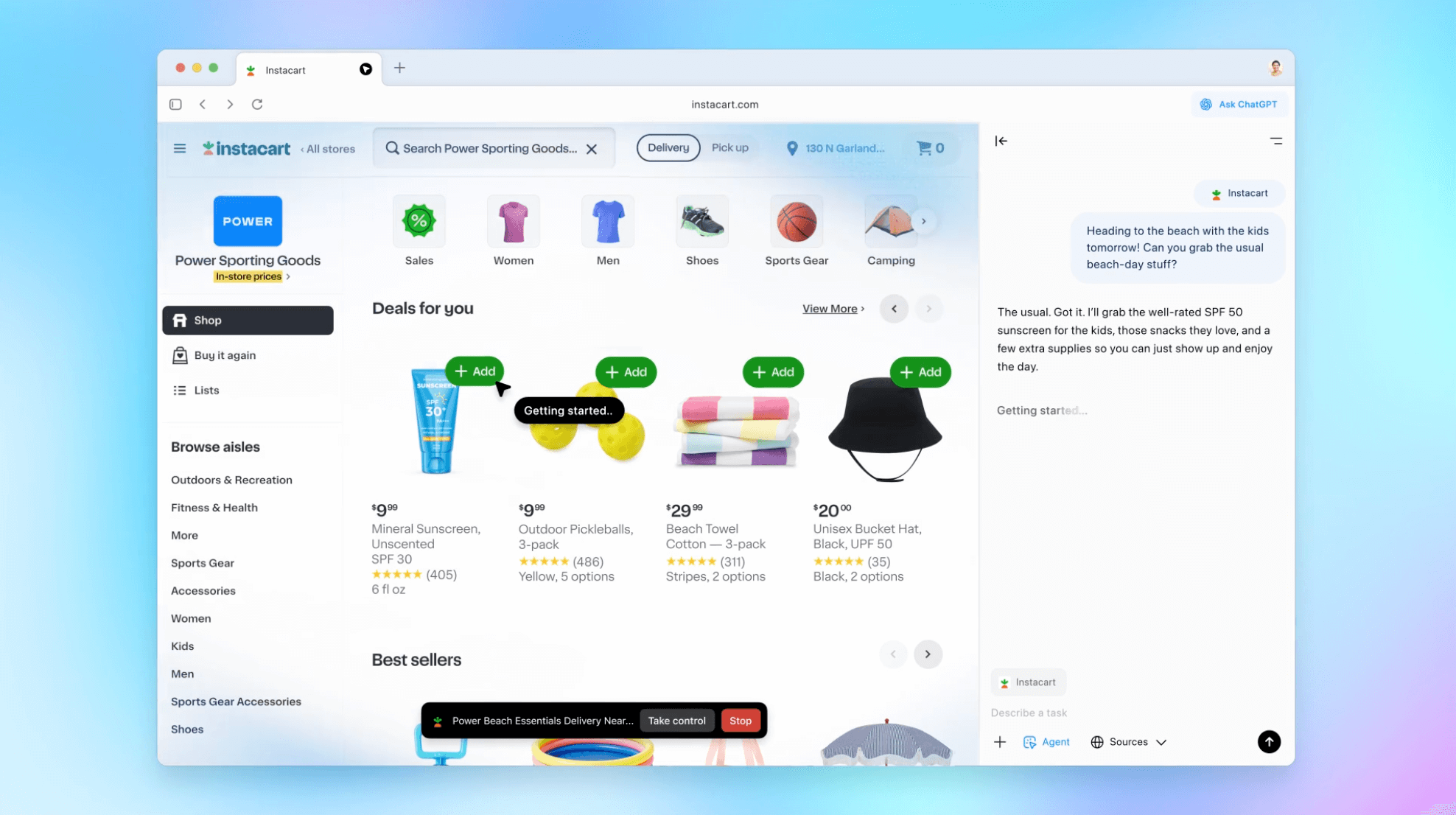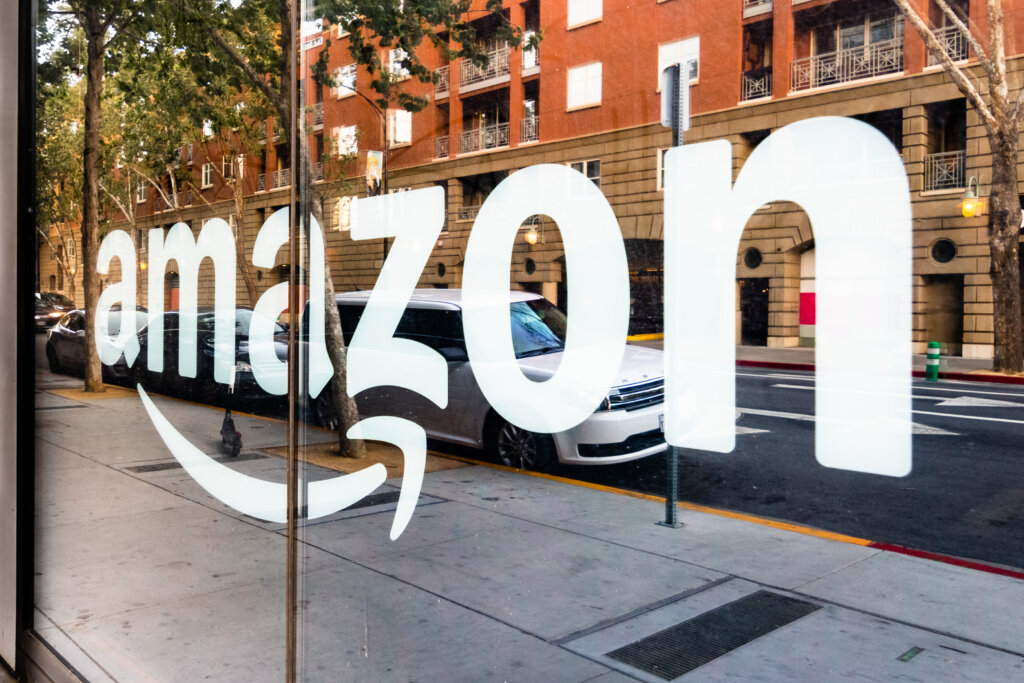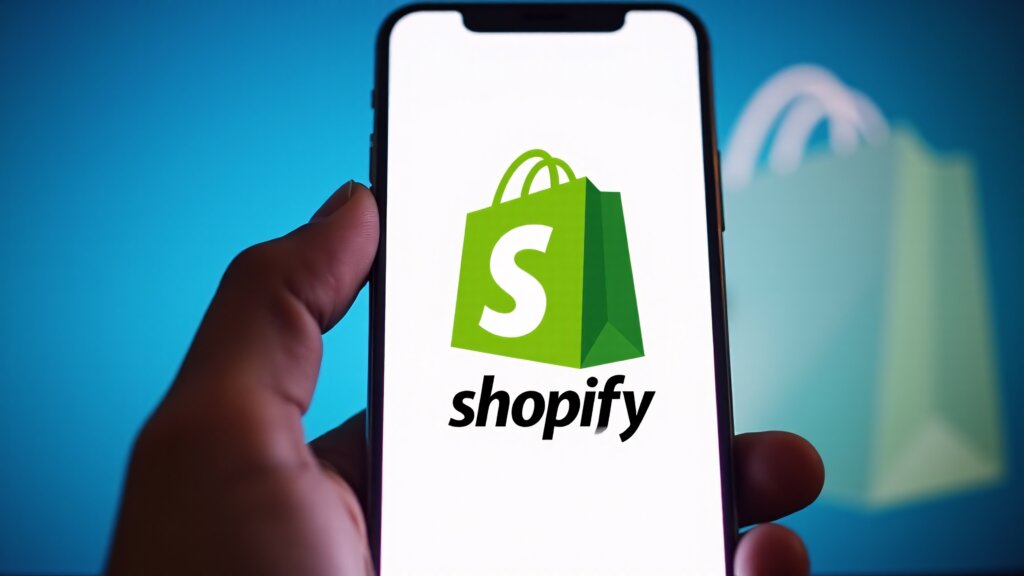OpenAI just introduced ChatGPT Atlas, a new web browser built around its flagship AI. Instead of opening ChatGPT in a separate tab, Atlas makes the model part of the browsing experience — combining search, context, and conversation in one window.
It’s available now on macOS for Free, Plus, Pro, and Go users, with Windows, iOS, and Android versions coming soon.
What Makes Atlas Different
Atlas isn’t just another browser with an AI sidebar. It’s built so ChatGPT can see, interpret, and act on what’s in front of you online.
- Browser Memories let ChatGPT remember the sites you’ve visited (if you opt in), giving you context-aware follow-ups like “Summarize the job postings I looked at last week.”
- Agent Mode allows ChatGPT to take limited actions — opening tabs, filling forms, or researching — directly inside your browser.
- Privacy Controls are front-and-center. You can toggle visibility per site, browse incognito, or clear memories entirely.
These features shift ChatGPT from assistant in a box to assistant in your workflow.
“AI gives us a rare moment to rethink what it means to use the web,” OpenAI wrote in its launch announcement. “With Atlas, ChatGPT can come with you anywhere across the web—helping you in the window right where you are.”
Early Use Cases
Marketers, students, and knowledge workers are already imagining how Atlas could change daily habits.
- Research without copy-paste – Ask ChatGPT questions about the page you’re on instead of switching tabs.
- Content brainstorming in-flow – Draft posts, product copy, or summaries while reviewing data or reports.
- Automation for simple tasks – Use agent mode to organize bookmarks, fill forms, or pull highlights from multiple pages.
- Smarter learning loops – Because Atlas remembers context, students and professionals can revisit past topics with richer follow-ups.
For example, an early tester cited being able to ask real-time questions about lecture slides without taking screenshots — ChatGPT “instantly understood what I was looking at.”
Why It Matters
Atlas hints at a future where browsing becomes conversational. Instead of typing a search, clicking ten links, and building notes manually, the browser itself may synthesize and act. That shift could:
- Change how we find and cite information (less search, more synthesis).
- Blur the line between reading and working.
- Challenge Google Chrome’s dominance if adoption sticks.
It also raises new questions about data privacy and trust. Allowing an AI to “see” pages means handing it context that traditional browsers never stored. OpenAI says browsing data isn’t used for training unless users opt in… a line marketers and regulators will be watching closely.

The Bigger Picture
If ChatGPT was the beginning of conversational AI, Atlas is its natural extension — bringing that assistant into the digital environment itself.
It follows a broader trend: AI models moving from standalone apps into the fabric of everyday tools, from writing assistants to search engines, and now browsers. For creative and marketing teams, this could streamline tasks like research, summarization, and campaign planning.
But the real opportunity may be discoverability. As AI-driven interfaces like Atlas, Perplexity, and Google’s Gemini Live shape how users consume content, the traditional “10 blue links” model is fading. Understanding how to appear within AI-generated answers will be the next SEO frontier.
What’s Next
OpenAI says Atlas will add multi-profile support, improved developer tools, and new ways for web apps to integrate via its Apps SDK. That means a wave of AI-optimized sites and extensions built specifically for Atlas is coming.
YouTube, “Introducing ChatGPT Atlas,” 2025
Final Thought
ChatGPT Atlas isn’t just an app update; it’s a re-imagining of how we move through the web.
If the browser becomes the interface for intelligent agents, every click could be powered by context, memory, and intent.
The experiment starts now.
Interested in how AI-driven browsing could shape your brand’s visibility?
Talk to our experts to explore AI Optimization and Search Visibility strategies designed for the new wave of agentic tools.
Optimize Your Brand’s Visibility in AI Search
Millions turn to AI platforms daily to discover and decide. Make sure they find your brand.






